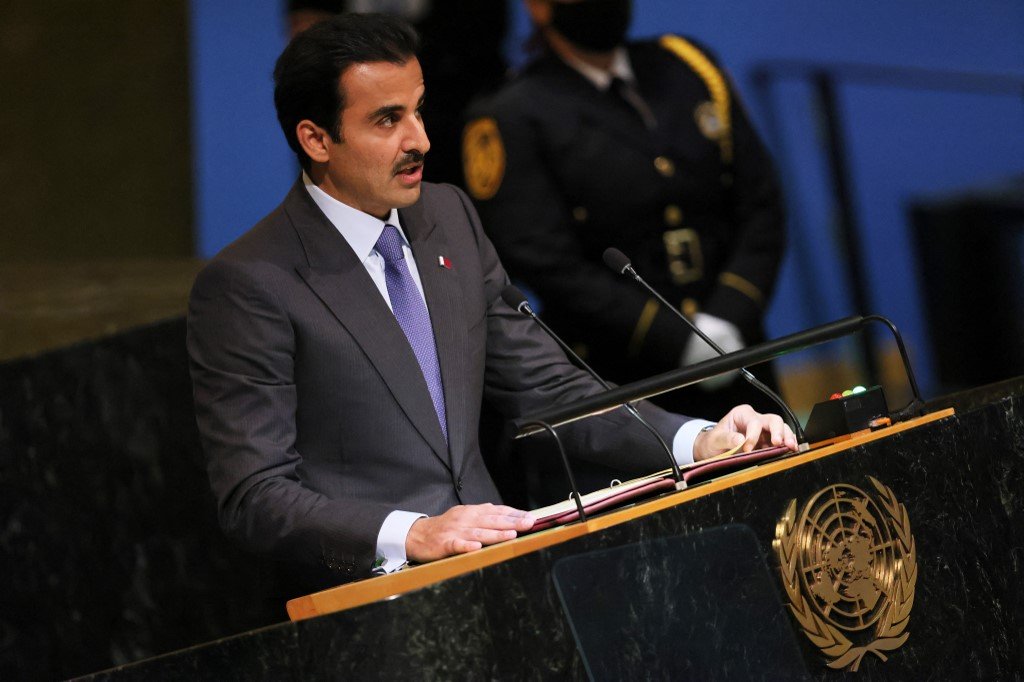LONDON: Qatar’s emir on Tuesday called on the international community to put pressure on Israel to bring to an end its occupation of the Palestinian territories,
Speaking during the General Debate of the 77th Session of the UN General Assembly, Sheikh Tamim bin Hamad Al-Thani said: “The Security Council must shoulder its responsibility and must compel Israel to end the occupation of Palestinian territories and to establish a Palestinian state along the borders of 1967, with East Jerusalem as its capital.
“Failure to implement international resolutions, and in light of the continuous change of the situation on the ground, the occupation and its settlement activities, is pursuing a policy of fait accompli.
“This will change the rules of the conflict and will change the format of solidarity in the future. At this juncture, I stress that we stand in full solidarity with the brotherly Palestinian people in their aspiration to achieve justice.”
The emir then highlighted the plight of Syrians, millions of whom have been forced from their homes during the decade-long conflict in the country.
“We must pay attention to the roots of the issues before their impacts knock on the doors of our countries,” he said.
Sheikh Tamim also noted that the ongoing war in Yemen is of concern to Qatar.
“In Yemen, we see a glimmer of hope in the parties’ consensus on a temporary truce and we are looking forward to a comprehensive and permanent ceasefire in preparation for negotiations between the Yemeni parties,” he said.
He also talked about other issues affecting the region, including sectarianism in Iraq, the crises affecting Lebanon, and the situations in Libya and Sudan.
The emir said a consensus on the issue of the Iranian regime’s nuclear ambitions would help bring stability to the Middle East.
“No one has an alternative to such an agreement and reaching it would be in the interest of the security and stability of the region and will open the door to a broader dialogue at the regional security level,” he told the General Assembly.
Turning to the global energy crisis, Sheikh Tamim said that efforts to alleviate its effects can only take place alongside protection of the environment.
“We have to provide energy in the meantime, and to realistically realize that the future of energy will include a diverse mix of its sustainable sources, such as solar energy, hydrogen, wind energy, and hydrocarbon sources,” he said.




